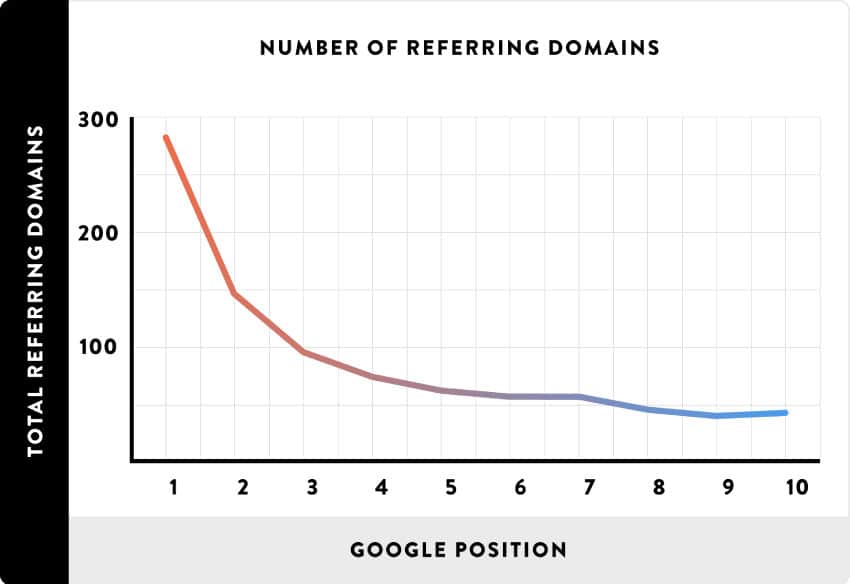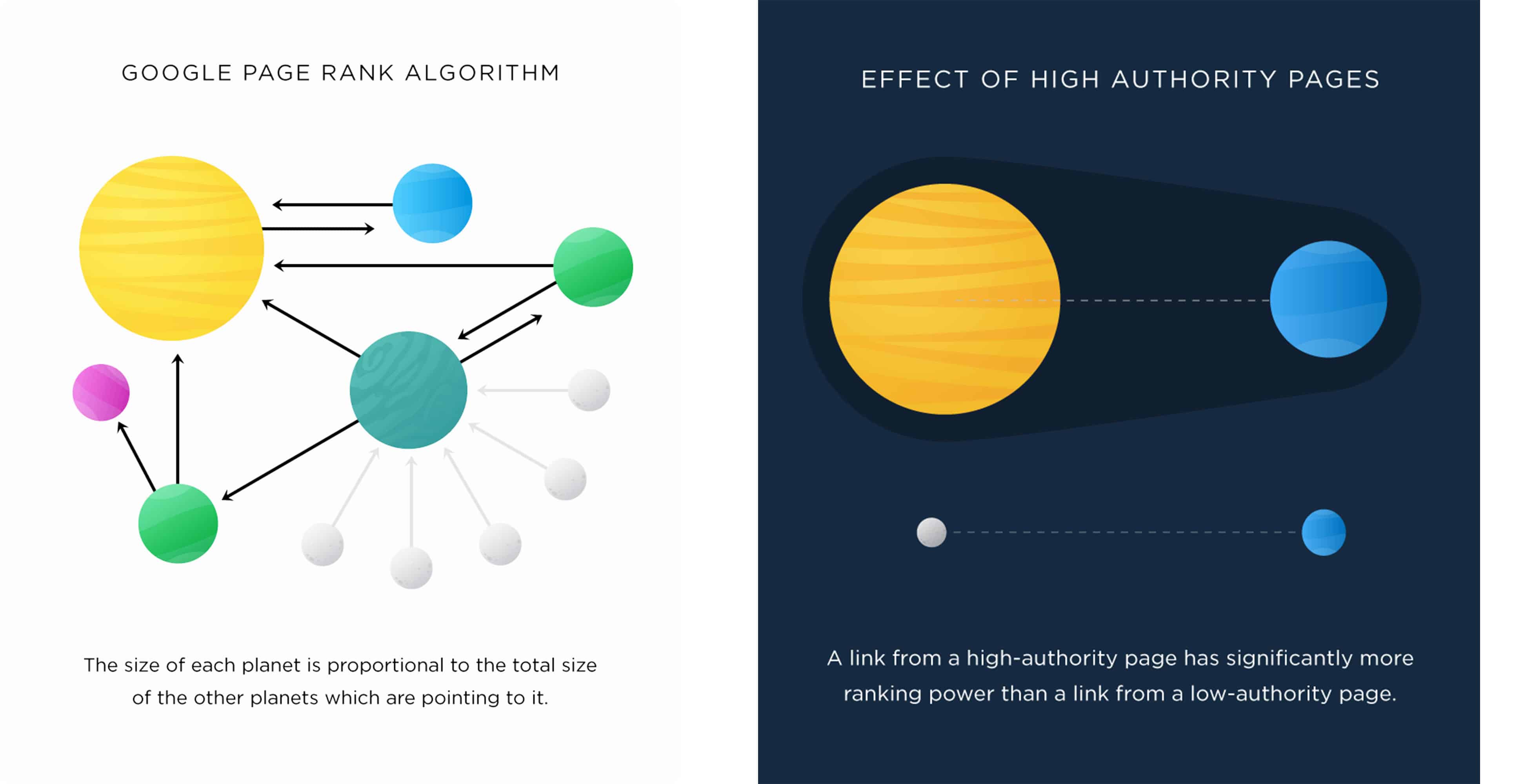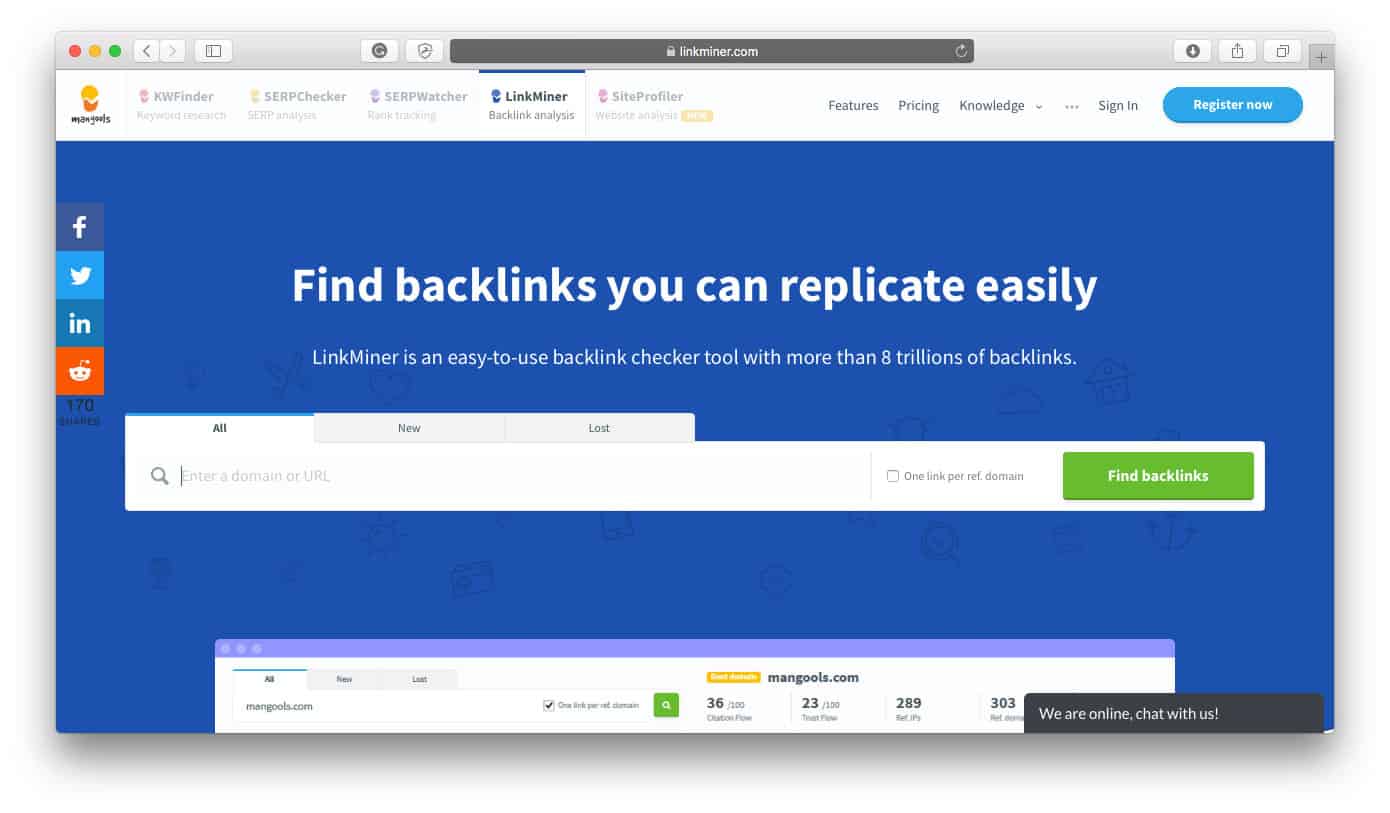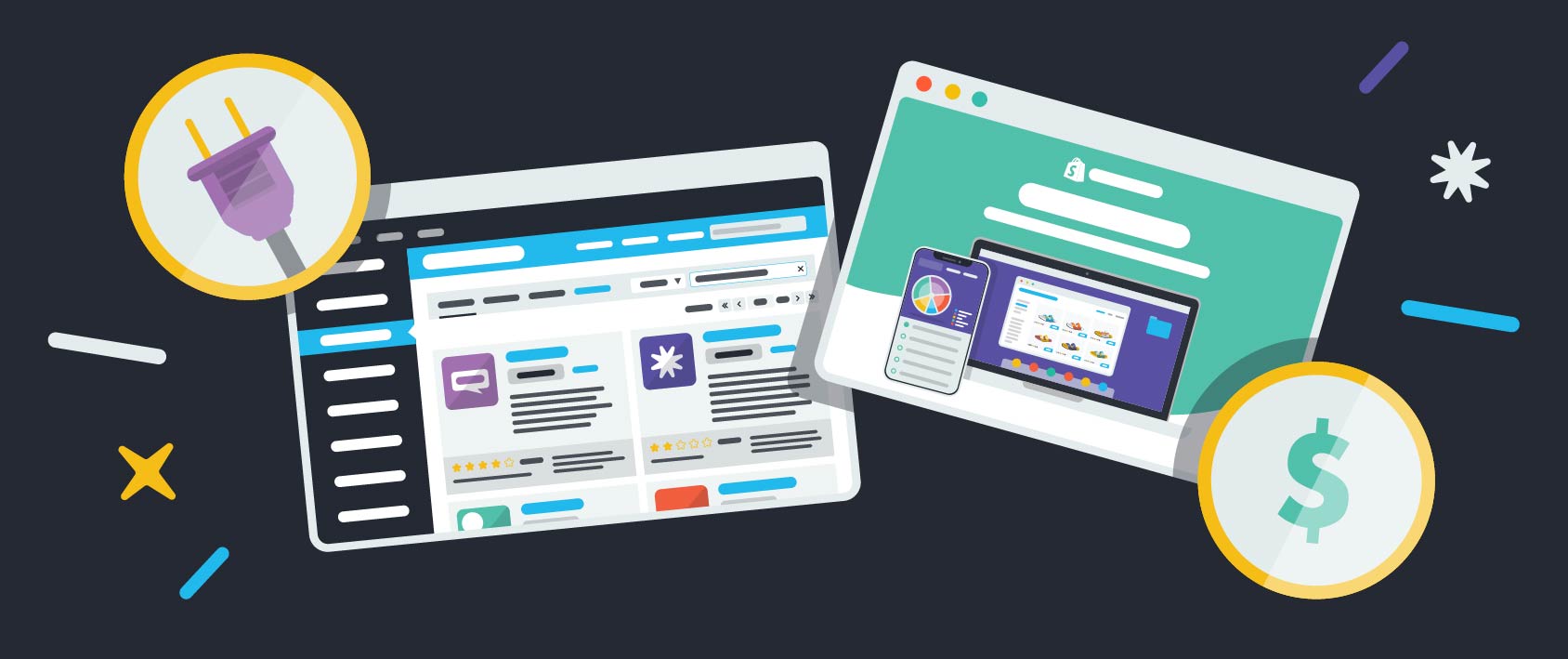
Link Building Strategies: The Beginner’s Guide for Ecommerce Stores
If search engine optimization (SEO) is the driving force behind ecommerce websites, link building is the gasoline. Effective link building is responsible for more than 50 percent of your SEO success. Getting links from other websites helps improve your search engine rankings and traffic but understanding how to utilize links in the best way, however, takes strategy.
Link building not only increases traffic to your ecommerce website, it ultimately increases sales.
- List posts, on average, receive 74 percent more links than any other content type
- Infographics receive 62 percent more backlinks than other content
- In a study of 1 million Google search results, links impacted rankings more than any other factor
- Google reveals backlinks are among the search engine’s top three ranking signals
Google — which accounts for 72.3 percent of all search engine inquiries — relies heavily on backlinks in its PageRank algorithm. When other websites link to your content, it validates the quality of your ecommerce site, improving your SERP ranking.
Most ecommerce site operators see link building, at least a portion of it, as something that’s out of their control. But with a thorough strategy in place (which we’ll outline for you in detail below), improving the link building to your ecommerce platform can be easier and more profitable than you think.
What is Link Building?
Link building is the practice of getting other websites to link to your ecommerce site. Links from third parties into your product pages, blog, or other content is a virtual vote of support that Google (and other search engines) recognize as authority and trust.
The more websites that link to you, the higher your SEO score. Naturally, the more trustworthy the connecting sites, the greater the SEO boost. Effective link building for ecommerce positions your brand as one of authority, relevancy, and trust, which, coincidentally, are the three pillars of SEO.
Link Building Creates Authority
There are three types of SEO authority: Domain, page, and link. The higher the authority (like receiving a backlink from Huffingtonpost.com or Forbes.com), the more your SEO benefits.
- Domain Authority: A score that correlates with how well a website is likely to perform in search engine results. Because Google ranks by pages, not sites, the domain authority gives you insight into a website’s value as a link and probable SERP placement. All links to the domain are considered when the domain authority score is calculated
- Page Authority: Only links to a specific page are considered with creating the page authority score, which reveals the likely SERP ranking of a page. The domain authority score is considered in the calculation of the page authority score
- Link Authority: Sometimes referred to as link equity, link authority is the value that’s passed from one page to another. A number of variables go into this value, like the linking website’s authority, HTTP status, and other factors
Link Building Creates Relevancy
Relevant links connect topically related pages. For example, if you sell a natural skincare line on your ecommerce site, it’s ideal for an influential beauty blogger to link to your site when talking about how to maintain healthy skin. The relevancy of the links plays a role in your site’s overall topic relevancy.
Link Building Creates Trust
The level at which a search engine trusts your domain directly impacts your SERP ranking. Google is quick to recognize (and block) websites that don’t pass the TrustRank test. Think of TrustRank by Google as a virtual filter: Google algorithms determine if your content and links are trustworthy. If so, they fall somewhere in search results for your keywords. The higher the TrustRank score, the better your SERP placement.
Link Signals & Your Ecommerce Site
Link signals account for 17% of your website’s overall effectiveness and give your ecommerce site strong ranking with search engines.
What Are Link Signals?
Link signals are used by search engines to help determine the importance of your website. There are a number of link signals — paired with other elements — that search engines use to determine the authority and relevancy of your ecommerce platform.
- Anchor Text: The clickable words that take you to another website or internal page when you’re reading a blog or other online content is called “anchor text.” The anchor text of a backlink helps search engines determine how relevant a page is to a particular topic, which makes using the right keywords crucial in developing effective anchor text. With the right keywords, the page is more likely to rank well for targeted words and phrases
- TrustRank: We reviewed the concept of TrustRank with search engines above, but it’s worth repeating. It’s estimated that nearly 60 percent of content on the internet is spam, so Google and other search engines use TrustRank to weed out all the irrelevant, potentially harmful content, to bring your audience valuable information
- Link Similarities: As you may assume, those websites classified as spam often link to other spam-filled sites and vice versa. Conversely, trustworthy websites are normally very particular about outbound links and will only connect to other trustworthy sites. Google’s ability to recognize link groupings means you need to be extra selective to which sites you connect
- Timeliness: Like content, links grow stale and irrelevant over time. Google tends to bury those domains under pages of search results. Earning fresh links keeps your pages high in SERP rankings and alerts search engines to the fact that your ecommerce site remains popular and relevant
Now that you understand why link building is important, let’s take a look at the types of links available to boost your ecommerce site relevancy and traffic.
Types of Website Links
Create a stronger ecommerce site with different types of links. The website links you should build content around include:
- Outbound links
- Internal links
- Backlinks
Outbound Links
You create an outbound link each time you connect to another website from within your content. Let’s break down the two types of outbound links.
- Dofollow Links: The majority of your outbound links will be dofollow. Using dofollow links — connecting to another site without changing the settings of the links — helps search engines better understand your website. You want to link to authority sites in your niche
- Nofollow links: Altering the outbound link to add a nofollow reference in the code means Google won’t penalize you for linking to a questionable website. The link isn’t picked up by PageRank, so while it can’t hurt your page authority, it also gives no value to the site to which you’re connecting
When Should I Use Nofollow Links?
If you’re confused as to when you should use nofollow links, here are some good examples:
- Places where there’s likely to be spam content, like the commenting section of blogs or social media posts, call for nofollow links. Even with strong moderation, spam can squeeze through to these spaces and can cause search engines to group your link with the bad content
- Sponsored content on your ecommerce site is another good place for a nofollow link. The content may not necessarily be relevant to your site topic, so use a nofollow link so you don’t confuse the search engines
- Paid links, such as a paid business directory, should also utilize a nofollow link
Internal Links
Interlinking is when you link one page on your website to another page. Internal links allow you to keep customers on your site longer, add authority to pages, and develop an easy-to-navigate ecommerce site.
If you use WordPress, Mentionable is a free plugin that helps you create relevant internal links.
Backlinks
Backlinks are links from other websites back to your domain. The more links you have into your site from reputable sources, the higher your page ranks with search engines. Even better, when the backlink is connected to anchor text keywords for that particular page, you’ll rank higher.
Backlinks are one of the fastest ways to get your domain recognized by Google, but you can’t leave your link building to chance. If you want to grow your ecommerce business, you need a backlink blueprint.
Link Building Tactics
There are numerous ways to build links, but how you go about it depends partially on your industry and the resources you have available. Competitive ecommerce industries create a more difficult environment for acquiring backlinks, but there are still link-building strategies that can help you climb Google’s TrustRank ladder.
Create Shareable Content
Content that is visually appealing and offers usable information will get the most links. While infographics receive 62 percent more backlinks than other types of material, there are other types of content that also attract links. Focus on:
- List articles
- Whitepapers
- Videos
- Photo galleries
- How-to guides
Once you build the assets, don’t wait for bloggers or other brands to find them online. Send them a link to your new content or tag relevant websites in a social media post. Content-based link building not only brings more traffic to your site, but it also makes you a voice of authority in your niche.
Start an Ecommerce Blog
An ecommerce business shouldn’t just offer a product or service; it should exist to make your customers’ lives better. By starting a blog on your particular niche, you have a new way to engage with your customers. Blogging isn’t meant to just be a stream of outgoing information; it should be a conversation with your readers, allowing you to engage through comments, social shares, and building relationships with fellow bloggers.
You will gain links when your blog:
- Adds Value: Your ecommerce site’s blog isn’t about you, it’s about your customers. Entertain them, educate them, share with them, or do a bit of all three. The blog should be filled with valuable content they’ll use and will bring them back
- Has a Purpose: What is the goal of your ecommerce blog (besides following the direction of this article)? You should have a clear plan on how your blog will attract readers through SEO, social media, and eventually increase your revenue
- Develops Your Brand: Blogging is a great way to develop your brand voice. Is your company more corporate-focused, relaxed and edgy, or upbeat and fun? Carry the brand voice throughout your blog so you create an experience for your audience and turn occasional readers into loyal customers
Some of the best ecommerce site blogs to follow include:
Make Headlines
Being in the news can get you a lot of attention. Please don’t mistake this to mean writing a press release loaded with links back to your website — those days are over — but when you or your company does something newsworthy, share it! The press loves a great example or case study, and if you can fit the bill, you’ll benefit from major referral traffic.
Take Ring, for example. The video doorbell company that’s now recognized around the world was originally featured on the popular entrepreneurial investment television show Shark Tank. Ring founder, Jamie Siminoff, didn’t receive an investment from any of the show’s hosts, but after recently being purchased by Amazon, the security company is estimated to be worth more than $1 billion.
Business websites now use Ring as an example for hopeful entrepreneurs worldwide.
Write Guest Posts
Don’t stop with blogging for your own ecommerce site — reach out to authority voices in your niche and guest post on their sites. Most websites allow guest bloggers to link back to their own websites within their author bio or the blog article itself. Not only this but readers are on the hunt for guest bloggers, as 62.96 percent of people perceive blogs with multiple authors to be more credible.
Guest post tips:
- Thirty percent of readers say quality content is what makes a blog credible
- Guest posts with a title made up of eight words increased average link acquisition by 110 percent
- How-to style guides increased average guest blog link acquisition by 40 percent
- Long-form content outperforms short posts by more than 40 percent (go for 1,000-plus words)
Sample Products to Influencers
Providing sample products to social media influencers in your niche will help increase links to your site; particularly your product pages. Save time and money by studying your market and narrowing down which influencers are most likely to reach your audience.
With this partnership, you’re reaching a targeted audience that’s already built trust in the influencer. You’ll also benefit from those new customers sharing information about your brand with others who you would never have otherwise reached. Since 81% of consumers’ purchasing decisions are influenced by their friends’ social media posts, you have the opportunity to vastly extend your brand’s reach.
Get Social
In 2015, Facebook influenced 52 percent of consumers’ online and offline purchases. By being consistent with your social media engagement, you’ll bring in more revenue and grab the attention of bloggers and influencers. Not only that, you can create backlinks to your ecommerce business by customizing your own social media platforms.
- About Tab or Profile: Include links to your website from your brand profile or about tab on Facebook, Twitter, Instagram, and other social sites
- Cover Photo: Be sure to include a description with a link to your site when you update your profile or cover photo (this is especially important if you’re promoting a particular product)
- Contact Space: On your business social media pages, include a link to your contact or about page on your website within the “contact” space (like with LinkedIn or Facebook)
Go Deep
Deep linking is when you link internally or another site links to a product page or other authoritative content page within your site (i.e. not the homepage or blog landing page). By only linking to your homepage or main navigation page, you’re giving authority to that page rather than the pages you actually want your consumers to visit. Benefits of building deep links include:
- Google views your site’s authority as natural and dispersed
- Blog or product pages rank (think higher conversion potential)
- Helps SERP results with the entire site, not just homepage
Not every page on your website is worthy of a deep link. Choose three to five traffic-driving pages on your site to boost with links. Remember that 20 percent of your blog posts will be responsible for 80 percent of your traffic, so choose web pages that are already getting decent traffic rather than starting from scratch.
How to build deep links:
- Use your content in multiple ways (build slideshows, videos, infographics)
- Share your posts on every possible outlet like social media, forums and authority sites
- Link back to a specific blog post within your guest post bio or author line
- Use the authority URL rather than your homepage when you leave comments in forums
- Share your content and links on sharing sites like Slideshare, AuthorStream, and Scribd
Conclusion
As you develop your link building strategy, keep an eye on the competition and publications within your niche.
Google keywords for which you want your brand to rank and take note of the companies that have a high SERP ranking. Google Alerts and BuzzSumo can help you track trends in your marketplace. Monitor Backlinks, SEMrush, LinkMiner will also give you insight into competitor backlink profiles.
If your brand, or a particular product, is mentioned in a blog or article online, contact the publisher to request a link to your specific product page. Most writers are happy to accommodate your request, as they’ve already written about the topic. You can also leverage your current affiliate relationships and ask for dofollow links.
Link-building tactics are a great way to increase traffic to your website, build a loyal customer base, and grow revenue. While your ecommerce business is your priority, be aware of opportunities to support other complementary brands or products with links to their sites. Building relationships is a vital part of acquiring ongoing links and maintaining relevancy. Connecting with social influencers, manufacturers, and product reviewers supports your organic marketing and link building process.
Link building can be an extensive and demanding process for ecommerce businesses, but implementing a well-planned strategy and staying patient will expand your brand awareness, search engine rankings, and ultimately, your revenue.







